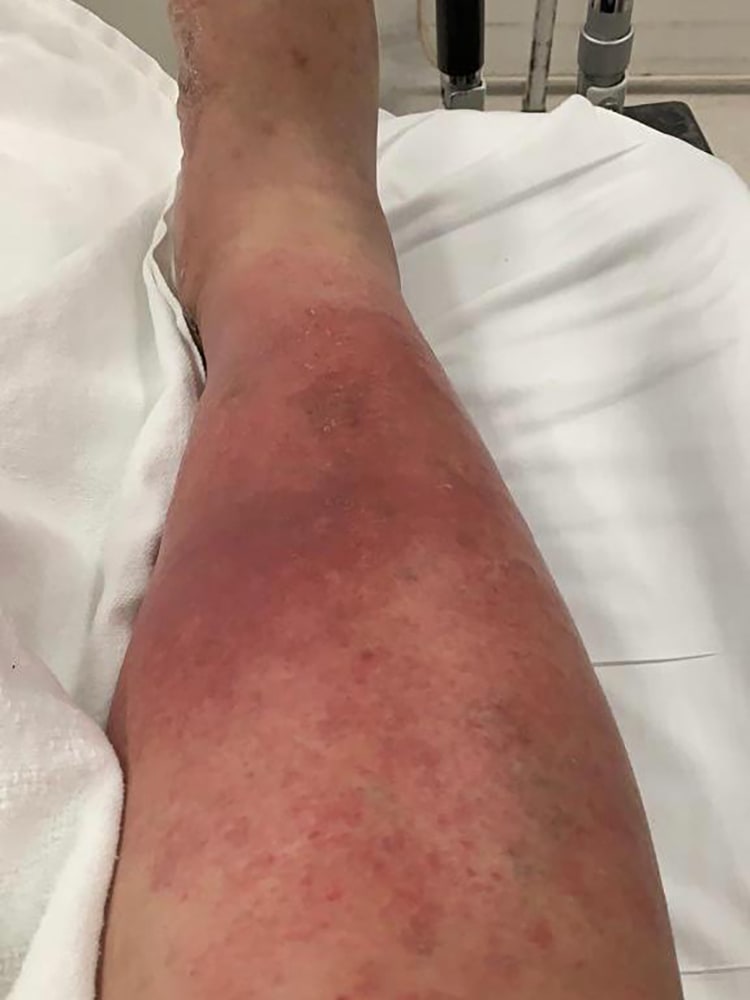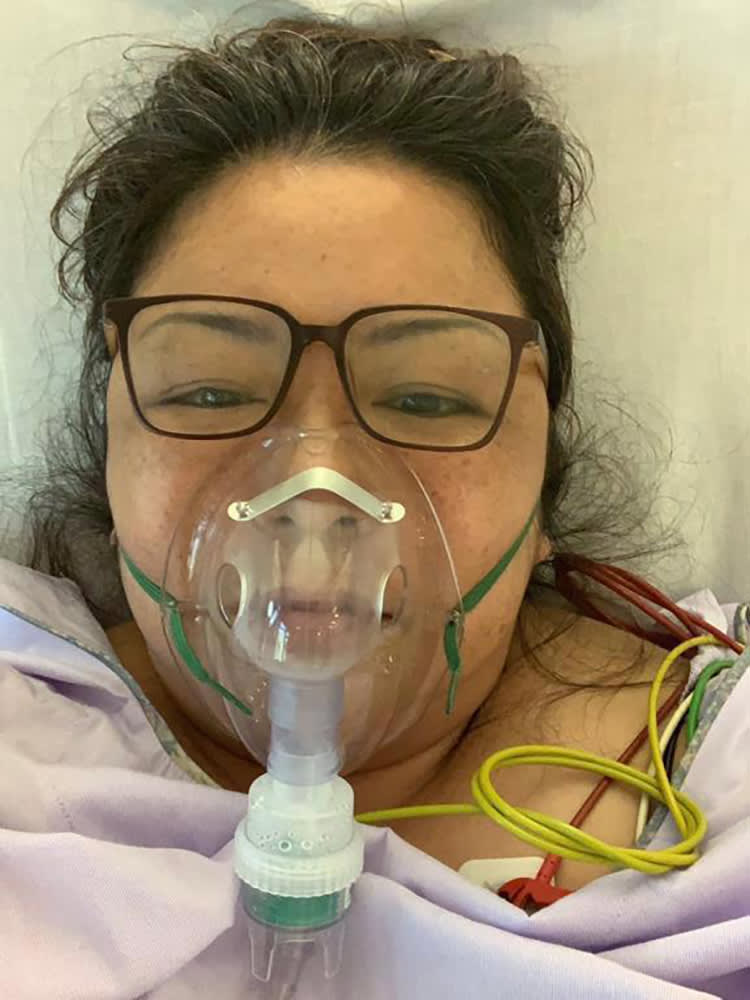Atrial fibrillation in women: This abnormal heart rhythm disorder is underdiagnosed and more severe in females
AFib, as it’s called, is characterised by rapid and irregular heart rate and is more challenging to diagnose in women. Here’s how to spot the early signs – doctors say not seeking timely treatment could increase the risk of stroke, heart failure and cognitive impairment.

Atrial fibrillation is the most common abnormal heart rhythm condition in Singapore but women tend to be diagnosed much later. (Photo: iStock/torwai)
It began with some swelling in the right leg, accompanied by a feeling of breathlessness in May 2019. At that time, 52-year-old Goh Jit Miin thought her asthma was flaring up.
“My asthma is usually mild and well controlled. However, this was a lot more serious. I suddenly found myself fighting for breath even when taking a few steps,” she recalled.
Goh visited two general practitioners who both found that she had an irregular and rapid heart rate close to 200 beats per minute. In comparison, a normal heart rate should range from 60 to 100 beats a minute. Both GPs gave her referral letters for further check-ups.
Over the next two weeks, Goh visited Tan Tock Seng Hospital’s A&E four times due to episodes of breathlessness. The first three times, she was retained for seven to eight hours for observation and medical tests but was ultimately sent home without any conclusive findings.
By the fourth visit, Goh’s right leg had swelled so visibly that she was hospitalised. She discovered she had put on close to 10kg due to fluid retention.
Goh was sent to the Intensive Care Unit (ICU) for two weeks where she was hooked up to heart rhythm monitors and underwent multiple tests. However, the cause of her illness continued to evade doctors.


Eventually, she was referred to the National Heart Centre Singapore (NHCS), and after a series of cardiac investigations, she was diagnosed with atrial fibrillation, an irregular and chaotic heart rhythm which can affect the heart’s contraction and relaxation.
“She also developed heart failure contributed by atrial fibrillation, hence she developed fluid retention in her legs, as well as fluid retention in her lungs, which worsened her breathlessness,” said Dr Kelvin Chua, Senior Consultant of the Department of Cardiology, NHCS, the doctor who treated her.
UNKNOWN BUT NOT UNCOMMON
Atrial fibrillation, commonly referred as AFib, is the most common abnormal heart rhythm condition, affecting around 1.5 per cent of the Singapore population.
It is sometimes caused by damage to the heart’s electrical system as a result of other conditions such as coronary artery disease and high blood pressure.
But in many cases the cause of AFib is unknown. Age, heart disease and hereditary factors however are known to increase the risk of AFib.

“Common symptoms include sensations of a fast, fluttering or pounding heartbeat (palpitations), chest pain, dizziness, fatigue, light-headedness, reduced ability to exercise, shortness of breath and weakness,” said Dr Chua.
“These symptoms may come and go, usually lasting for a few minutes to hours. In some cases, they may last as long as a week and episodes may happen repeatedly,” he added.
Although these symptoms are usually not life threatening, AFib may lead to more serious medical problems such as stroke, heart failure, cognitive impairment and eventually increase the risk of mortality, said Asst Prof Daniel Chong, Senior Consultant at the Department of Cardiology at NHCS; and Head of NHCS Cardiology at Sengkang General Hospital.
UNDERDIAGNOSED, ESPECIALLY IN WOMEN
Part of the reason Goh’s condition progressed to heart failure may have been due to delayed diagnosis. According to Dr Chua, AFib tends to be underdiagnosed and delayed diagnosis is very common.
One reason is the low awareness of the disease among the general population. Another is that “a fair proportion of patients may only have minimal to no symptoms and, as this condition may not be debilitating at the initial stages, they may choose to ignore mild symptoms and not seek medical attention”, he explained.
Women, in particular, tend to be disproportionately affected by delayed diagnosis: 71 per cent of experts felt that accurate diagnosis and management of AFib is more challenging in women as compared with men, according to a report by medical equipment manufacturing company Biosense Webster. This is the result of polling eight experts from different geographies in Asia-Pacific, including Dr Chua.

“We feel that (delayed diagnosis) may be more prevalent in women who may be juggling several roles as homemakers, caregivers and additional income-earners, and hence may not place their own health as a top priority,” said Dr Chua.
Even if they do consult a doctor, women more commonly present with atypical symptoms such as fatigue or headaches, which most physicians may not attribute to heart rhythm disorders, he added.
The same Biosense Webster study also reported that women often present with AFib at a later age with more comorbidities such as hypertension, heart failure, diabetes, obesity, chronic pulmonary disease and thyroid dysfunction.
“This increases the complexity of the disease which increases the risk of major complications such as stroke and heart failure, hence resulting in more severe symptoms,” Dr Chua explained.
Related:
TIMELY TREATMENT IS KEY
Early diagnosis is important because AFib is a progressive disease. “AFib tends to occur intermittently in the initial stages of the disease, with episodes lasting for 30 seconds or more before spontaneously reverting to normal rhythm,” explained Asst Prof Chong.
“Over months to years (this duration varies from person to person), episodes of AFib tend to recur more frequently and for a longer duration. Eventually, patients develop persistent AFib, meaning they are in AFib (and have abnormal heart rhythm) all the time,” he added.
Early diagnosis and timely treatment help patients avoid the complications of seeking treatment at an older age when they may also suffer from other diseases. It also reduces the long-term risk of cardiovascular outcomes and stroke, significantly improving mortality rates, said Dr Chua.
If physicians suspect a patient is suffering from AFib, he may recommend a wearable heart rhythm monitor, electrocardiogram patches, implantable cardiac monitor or wearable belts. Some fitness trackers can detect irregular heart rate, said Dr Chua.

“Treatment options for AFib include medications such as beta-blockers and anti-arrhythmic drugs, external shocks known as electrical cardioversions to reset the heart rhythm, and invasive procedures such as catheter ablation,” he added.
A catheter ablation is a generally safe and effective procedure which involves inserting catheters through small needle punctures at the groin area into the blood vessels to reach the heart.
Sensors on the tip of the catheter sense and detect abnormal electrical impulses and identify the small area of heart tissue causing the irregular or fast beats. Heat energy is then applied to destroy the problem area, explained Dr Chua.
RAISING AWARENESS FOR AFIB
Experts such as Dr Chua and Asst Prof Chong urge the public to be more aware and seek medical help if they experience any signs or symptoms similar to AFib.
Common symptoms include sensations of a fast, fluttering or pounding heartbeat (palpitations), chest pain, dizziness, fatigue, light-headedness, reduced ability to exercise, shortness of breath and weakness.
“AFib’s prevalence rises with age. Given that over 17 per cent of the Singapore population is aged 65 and above, with this proportion is expected to increase to about 25 per cent by 2030, AFib will likely present a greater risk to our ageing population,” stressed Dr Chua, adding that one of the most feared complications of AFib is stroke, which can be “debilitating and devastating to any individual”.
Asst Prof Chong added that although AFib affects the elderly much more often, it can occur in younger patients, such as those in their late 20s or 30s.
“AFib will lead to a dramatically shortened life with poor quality of life, however there are various treatment methods available to reduce the risks of AFib and improve the symptoms. With these therapies, many AFib patients can lead long and fulfilling lives,” he said.

Goh, for instance, has been recovering well after her catheter ablation procedure.
“I didn’t feel any discomfort after the procedure. The wound was very small – only 1cm to 2cm wide. I was discharged after two days and no longer feel breathless, or experience swelling or water retention,” she said.
“My heartbeat is also normal now. I continued to take medication for my heart condition for two years but have since stopped medication as well.”
Another unexpected silver lining from Goh’s AFib diagnosis: Though she used to be a heavy smoker and drinker, the diagnosis gave her the impetus to quit smoking and drinking to reduce her risk of both AFib and heart failure.
CNA Women is a section on CNA Lifestyle that seeks to inform, empower and inspire the modern woman. If you have women-related news, issues and ideas to share with us, email CNAWomen [at] mediacorp.com.sg.







